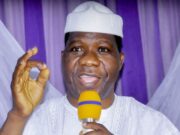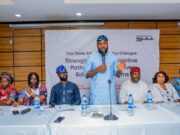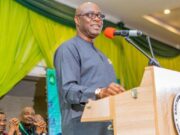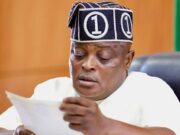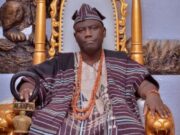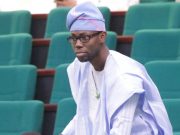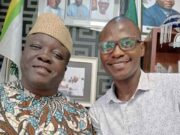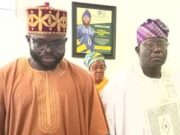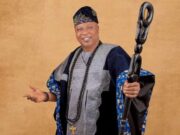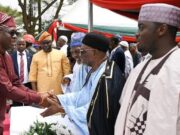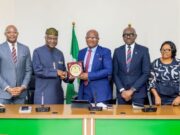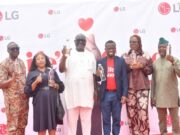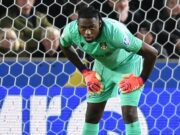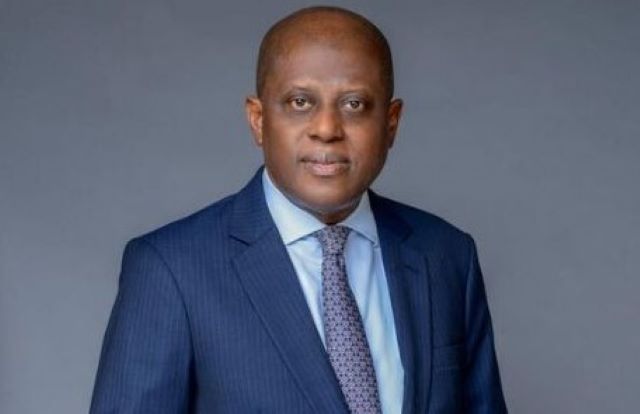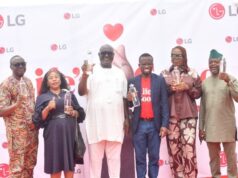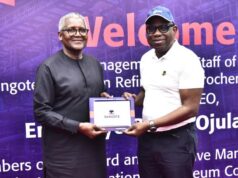The Central Bank of Nigeria has explained why interest rates remain elevated, insisting that the monetary policy stance reflects not just a fight against inflation but a bold attempt to restore credibility, rebuild investor confidence, and defend the value of the naira.
The CBN Governor, Olayemi Cardoso, disclosed this at the Nigeria Domestic Investment Summit: Operationalising Nigeria’s first policy, organised by the Ministry of Industry, Trade and Investment, on Monday in Abuja.
The apex bank stated this ahead of its forthcoming decision on the Monetary Policy Rate on Tuesday, a critical benchmark that directly impacts domestic investors.
Represented by the Director of Risk Management, Blaise Ijebor, at the Nigeria Domestic Investment Summit in Abuja, he admitted that high interest rates are painful, especially for businesses and the real sector, but argued that they are necessary to stabilise the macroeconomic environment.
“High interest rates are painful. We all know that. We all recognise that, especially for the real sector. But interest rates are not just about affordability, they are also about credibility,” Cardoso said.
According to him, the current monetary policy stance sends “a strong signal that Nigeria is serious about defending the value of its currency, restoring macroeconomic balance, and regaining investors’ confidence.”
The CBN Governor said the bank had no choice but to “return to fundamentals” after taking over an economy plagued by policy distortions, opaque forex markets, and evaporating investor confidence.
“Eighteen months ago, our financial markets were in disarray. The foreign exchange system was broken. There was policy opacity and severe investor apathy.
“Our immediate task as a Central Bank was to arrest the slide and restore discipline. And that meant bold reforms, not technical tweaks, starting with exchange rate unification, phasing out unsustainable interventions, and returning to a transparent market framework”, Cardoso added.
He added that monetary tightening, though painful in the short term, had yielded results in the form of increased investor confidence, improved reserves, and a more coherent policy environment.
“But while we defend stability with one hand, we are using the other hand to build inclusivity. We are improving access to finance, modernising payment infrastructure, streamlining regulation, and setting the stage for banks to better support businesses. That’s the spirit behind the recapitalisation programme”, he stated.
Speaking further, Cardoso commended domestic investors for their resilience through years of volatility, policy uncertainty, and inflation shocks.
He urged investors to see the forum not just as a “talk show” but a space to co-create solutions based on lived experiences.
“You all stayed the course. You continued to bet on Nigeria. That kind of patriotism is not just admirable, it is the foundation on which any credible recovery must be built.
“Your insights, challenges, innovations, and practical suggestions are critical to shaping a financial system that works for, with, and on your behalf, not against you”, he said.
In a strong effort to reframe the role of tax regulators, the Executive Chairman of the Federal Inland Revenue Service, Zacch Adedeji, said the agency now sees itself not as an enforcer but as a facilitator of growth.
“When you talk about the Nigerian Revenue Service, it’s deliberate. We are not law enforcement agents. We are service providers. You are our bosses,” Adedeji declared.
He said the new tax reforms under President Bola Tinubu had consolidated over 60 uncoordinated taxes into a single-window framework, making it easier for businesses to comply.
“We are here to remove your burdens. This is not about taking powers from any agency. It is about simplifying processes so businesses can scale, export, and grow”, he said.
On his part, the National President of the Nigerian Association of Chambers of Commerce, Industry, Mines and Agriculture, Jani Ibrahim, said that while foreign investments are welcome, domestic investors remain the unsung heroes of Nigeria’s economic journey.
“Foreign investment is important, but let us never underestimate the power, resilience, and ingenuity of local investors, MSMEs, and industrialists who have stayed committed to the Nigerian project.
“As we pursue the $1tn economy by 2030, domestic investment must be at the heart of our national strategy. And I assure you, we will surpass that target”, he stated.
Oye also announced that NACCIMA would be hosting a Made-in-Nigeria exhibition later in the year to showcase local capacity and attract scale-up opportunities.
Also speaking at the event, the Permanent Secretary, Ministry of Industry, Trade and Investment, Abba Rimi, described Nigerian investors as more than just capital providers.
“Domestic investors are community builders, job creators, and drivers of local value chains,” Rimi said.
He pledged government support for local businesses and said policy co-creation would remain a core strategy going forward.
He added, “This summit is not just a dialogue platform. It is a place to showcase investment-ready opportunities, resolve challenges, and build solutions that reflect the realities of Nigerian entrepreneurs. We are listening. We are learning. And we are ready to act.”
Credit: punchng.com







